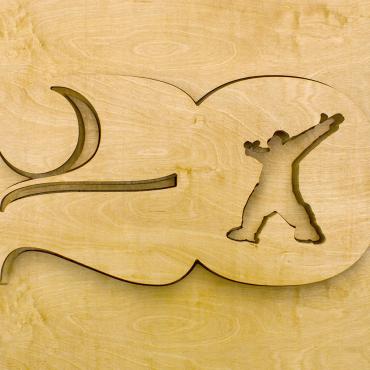Franklin, Tenn - This year Gotee Records is celebrating a huge milestone. The famed independent record label that has five RIAA Gold certified albums to their name and has launched numerous successful artist careers in R&B, rap, reggae and rock such as Out of Eden, GRITS, Jennifer Knapp, Relient K, Jamie Grace and many more, turns 20 years old.

Zilch
Band Members:
Zilch began as dc Talk's traveling band, forming into an independent act in 1997. The initial recording lineup was lead singer & guitarist Mark Lee Townsend, keyboardist Jason Halbert, and bassist Otto Price. Zilch released its first album, Platinum, in 1997 on Gotee Records but received little publicity. Platinum featured a modern rock sound with clear influences from 1960s pop music. One review cited the sound as being similar to that of All Star United, and another to Weezer plus pop and hip-hop influences.
Platinum was not praise and worship music, which the band would soon become known for, but contained more standard fare, including songs on topics like friendship, complacency, and priorities. Overall, the band was characterized as not taking themselves seriously, for instance by including a cover of the Schoolhouse Rock! song "My Hero, Zero", and reflected in the band's name, which was taken from the song by the same name written by The Monkees. Likewise, the title of the album was a play on their own status as musicians. "We're appointing ourselves superstars with a 'Platinum' album..." Jason Halbert told one reporter, "That basically means Zilch!," Their song "In The Sky" is an answer to two hits at the time, Joan Osbourne "One of Us" and Dishwalla "Counting Blue Cars", opening with the line, "... she asked if God was just a slob like us, well maybe something there is lacking," the second verse begins with, "Let me tell you all my thoughts on God, cause I just met with Him this morning..."
In early 1998 Mark Lee Townsend stepped down from the role of lead singer and was replaced by then-independent artist Jeff Deyo. Zilch would play shows, sometimes ending them with a praise song such as "Lord, I Lift Your Name on High." The band found that playing such music changed the nature of audience interaction with their performance, in positive ways.
Their label took notice as well, and eventually suggested that the band consider recording a full-length praise & worship album. This idea was initially met with resistance from the band, which was already in the process of recording a second album under the title Millennium. Eventually, the band agreed to do a praise and worship as a one-off, with no intention of continuing beyond the single album. However, as the recording progressed, the band decided to commit to the project. Jeff Deyo characterized the band's name change as a sign of that commitment, saying that is was similar to the story of the conversion of Paul of Tarsus.
The band renamed themselves Sonicflood and began rotating personnel making changes that would heavily impact the future of the band.
Sonicflood. (2011, April 28). In Wikipedia, The Free Encyclopedia. Retrieved 12:51, June 10, 2011, from http://en.wikipedia.org/w/index.php?title=Sonicflood&oldid=426357374



